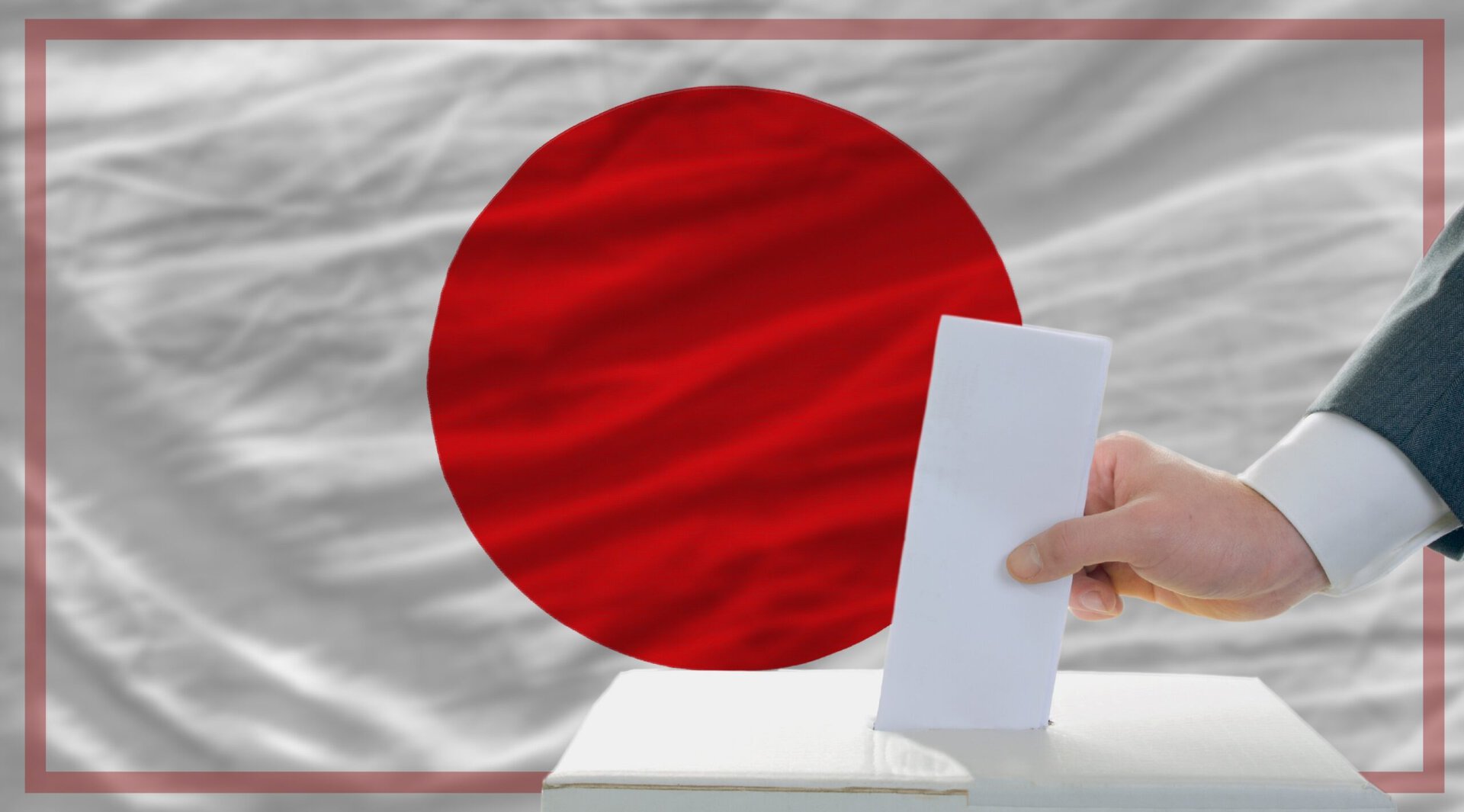Japanese equity markets have been some of the best performing in the world this year so far, however analysts and investors are now looking to see if and how the Asian country’s dramatic election results impact financial markets.
In May, Japan’s benchmark Nikkei 225 stock index hit all-time highs to trade comfortably above $38,000. The Topix index, which includes hundreds of Japan’s smaller companies and is more exposed to the performance of banks and financial institutions, made similarly historic gains.
Several reasons help explain why the Nikkei, and Japanese equities generally, have performed strongly this year. For one, the Japanese yen (JPY) has plunged to lows not seen since the 1980s as a result of sluggish export numbers, a widening trade deficit, and the large interest rate differential between Japan and the US, which has encouraged capital outflows and led to less demand for the yen. A weak yen has made Japanese equities cheaper and therefore more attractive for foreign investors.
A story 35 years in the making
— Jim Bianco (@biancoresearch) March 4, 2024
*JAPAN'S NIKKEI 225 STOCK AVERAGE BREACHES 40,000 FOR FIRST TIME pic.twitter.com/3VRJwrCbhH
Markets in Tokyo have also benefited from the ongoing trend of banks and hedge funds divesting from China in light of economic volatility in Beijing and increasing geopolitical uncertainty, particularly in the run up to a US election which could see the world’s foremost China hawk, Donald Trump, re-elected.
Investors have also been attracted to Japanese markets because the authorities in Tokyo have committed themselves to pursuing a bold policy of corporate reform. In recent months, reforms have been introduced which aim to strengthen Japanese corporate governance codes, promoting greater board independence and more accountability to shareholders.
In 2023, the Tokyo Stock Exchange (TSE) tightened its listing criteria and encouraged companies to outline plans on how to increase their capital efficiency. The TSE also announced stricter rules around diversity, disclosure, and sustainability while forcing listed companies to make key disclosures in both English and Japanese from March 2025 in a bid to increase its attractiveness for global investors.
However, at the end of September, the new Japanese prime minister Shigeru Ishiba announced plans for a snap election, which took place last week. The vote saw Ishiba’s party, the Liberal Democratic Party (LDP), lose its parliamentary majority. The LDP and its smaller coalition partner, Komeito, secured 215 seats, falling short of the 233-seat majority needed to command a majority. Ishiba has pledged to stay in office despite losing his party’s majority, but some investors initially feared that this political uncertainty could dent stock market prices.
The Japanese election is over, and the reaction was a move higher in the Nikkei despite a flurry of risk-oriented headlines. What lessons can U.S. investors learn from this going into next week?@JeffreyKleintop weighs in:
— Schwab Network (@SchwabNetwork) October 29, 2024
However, this is not quite how it has played out so far. Both the Nikkei and Topix in fact strengthened by nearly 2% in the immediate aftermath of the results, gains which are being sustained. This appears to reflect a belief that the LDP will try to win back voters’ trust by committing to more spending – monetary stimulus which would mean more cash on equity markets. This would also arguably make it less likely that the Bank of Japan will increase interest rates, boosting markets further.
The Japanese yen hit three-month lows against the dollar after the election results on Monday and has remained under pressure since. Adam Button, chief currency analyst at ForexLive, said “the yen has been the most volatile major currency this year, and a surprise election result has added to this uncertainty around monetary policy and fiscal policy going forward.”
A weaker yen is not necessarily bad news for Japanese equity markets, however, and could serve to encourage more foreign investors to take advantage of the relatively cheap stocks on offer.
Yen slumps after Japan's election, dollar set for biggest monthly rise in 2-1/2 years https://t.co/t0kLxMFm1S pic.twitter.com/cuY3WeucS2
— Reuters Africa (@ReutersAfrica) October 28, 2024
Richard Aston, portfolio manager of the CC Japan Income & Growth Trust and the Chikara Japan Income & Growth Fund, told Disruption Banking that “we don’t believe that the election result has lasting meaningful consequences for Japanese equities. The ongoing corporate reforms, focus on return on equity and shareholder return are more important than any minor short-term adjustments to the political agenda.”
“From an economic standpoint, the shift from deflation to inflation and its consequences (both positive and negative) are key to Japan’s outlook,” he added. “In our opinion, there seems to be little disagreement between the political parties on this point and they even share a common goal of normalising monetary policy. If anything, this result may reduce the risk of higher taxes for the foreseeable future, which is a minor positive.”
“Investors would do well to cut through the noise and focus on the prospect of consistently and significantly increasing shareholder returns in Japan.”
Author: Harry Clynch
#Japan #Asia #Nikkei #Topix #Equities















